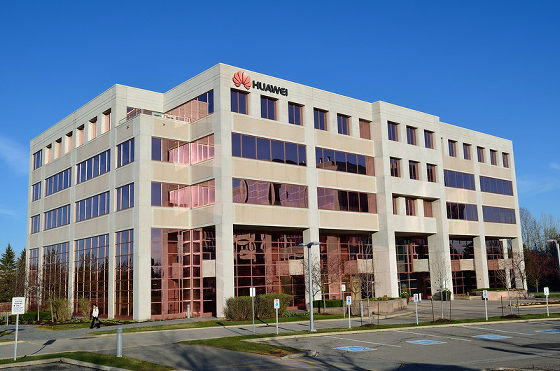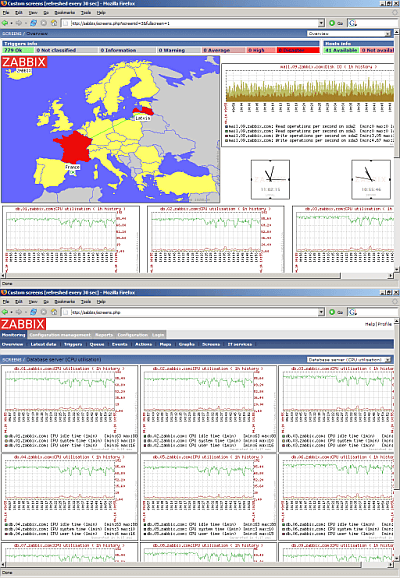Huawei accused of creating a backdoor in government software system

by
Business Efficiency Solutions (BES), a software company based in California, USA, partnered with Huawei in a project led by Pakistani police in 2016, and allegedly stole corporate secrets on August 11, 2021 ( Wed) filed a lawsuit. In the allegation, BES also alleges that Huawei created a backdoor in the software system.
UNITED STATES DISTRICT COURT CENTRAL DISTRICT OF CALIFORNIA
(PDF file) https://fingfx.thomsonreuters.com/gfx/legaldocs/zjvqkqxwkvx/IP%20HUAWEI%20TRADESECRETS%20complaint.pdf
Huawei Accused in Suit of Installing Data'Back Door' in Pakistan Project --WSJ
https://www.wsj.com/articles/huawei-accused-in-suit-of-installing-data-back-door-in-pakistan-project-11628947988

Huawei accused of stealing trade secrets, spying in Pakistan | Reuters
https://www.reuters.com/legal/transactional/huawei-accused-stealing-trade-secrets-spying-pakistan-2021-08-12/
Huawei stole our tech and created a'backdoor' to spy on Pakistan, claims IT biz • The Register
https://www.theregister.com/2021/08/13/huawei_accused_of_trade_secret/
BES has partnered with Huawei on a government project launched in 2016 to introduce new technology to police and law enforcement agencies in Lahore , Pakistan, according to a complaint filed in a district court in Santana, California. We have developed software. This project, called 'PPIC3', was originally contracted by Huawei from the Pakistani government, but it was decided to form a BES alliance because of lack of 'technical capabilities'. The amount paid to Huawei for the project is said to be 150 million dollars (about 16 billion yen).
According to the request for proposal, the Pakistani government called for the development of the following eight software systems.
1: 'Data exchange system (DES) ' that stores information such as national ID cards, customs, mobile phone companies, land value tax, immigrants, passports, etc.
2: 'Building management system (BMS) ' that manages the security and access of the building
3: 'Resource management system (RMS) ' that manages cars and tools used by the police
4: 'Digital Media Forensic Center (DFC) ' that manages still images and videos from police networks
5: 'Learning management system (LMS) ' used for vocational training and support
6: 'Media Surveillance Center (MMC) ' for monitoring the Internet (social media), publications, and broadcasts
7: 'Emergency Command / Vehicle Surveillance (ECV) ' for tracking cars, PCs, body cameras, etc. used by the police on site
8: 'Unmanned aerial vehicle (UAV) ' that manages industrial-level drones capable of real-time monitoring
In the project, BES is a subcontractor of Huawei, and when we partnered, Huawei asked us to 'send us software information for testing.' The information contained corporate secrets related to the foundation of BES's business, but BES agreed to Huawei's request and sent the information. After the test was over, the right to use BES technology was revoked, but Huawei did not uninstall the software or return the software design tools. 'Huawei secretly stole information about BES software systems from other sources, including vendors, after gaining BES corporate secrets and other intellectual property,' BES said. Claims.

by Open Grid Scheduler / Grid Engine
In addition, BES claimed that 'Huawei has used BES's software system to establish a'backdoor'to collect and view data important to Pakistan's national security and personal data about Pakistani citizens.' The word 'backdoor' was used in the allegations to indicate that Huawei has a copy of DES on a server in Suzhou, China. BES said that Huawei asked for permission from Pakistani authorities to build the system in Suzhou, but Huawei initially answered, 'There is no need to seek approval for so-called'testing'', 'If contracted If the contractor does not build the system, no payment will be made and the contract will be destroyed, 'BES claims. After that, Huawei explained to BES that it had obtained the approval of the Pakistani authorities and proceeded with the system construction in Suzhou City.
'Huawei did not show evidence of Pakistani approval, and BES was forced to install a backdoor,' BES CEO Javed Nawaz said in an interview, Wall Street Journal.・ The journal is spelled out.
'The word'backdoor'may not be appropriate, but it's hard to say without knowing the details of the system's technical architecture,' said The Register, a tech media outlet. doing.
Huawei declined to comment on the proceedings, but Pakistani authorities have announced that they have begun investigating the BES allegations. 'Our team is investigating this accusation and is seeking clarification from Huawei,' said Muhammad Kamran Khan, project director. 'We checked Huawei's data security, but so far, Huawei. There is no evidence that he stole the data. '
Related Posts:
in Security, Posted by darkhorse_log







